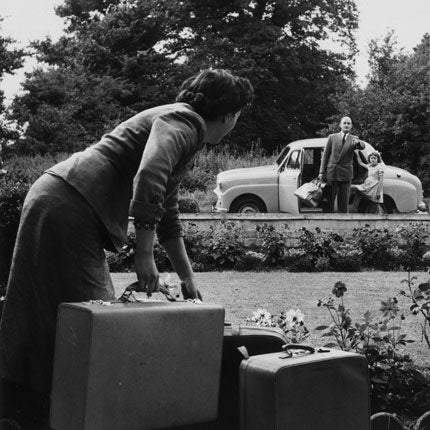Car-buyers turn to the forecourt for finance
Credit is just one of motor trade's lures to drivers

Cars are probably the second-biggest asset any of us will own, after our houses, and have become almost essential to most families, whether for work or to join this weekend's great bank holiday getaway.
No wonder that figures released by the Finance and Leasing Association show that over the past year the market for car finance has bucked the trends and remained stable, while most other forms of loan – from mortgages, personal loans through to store cards – have dropped significantly. "Dealerships and manufacturers have recognised that buyers want and need more flexibility, so are offering products that make it easier to fit into people's tighter budgets," says Helen Saxon of the FLA,
The dealers' relative success is shown by a change in the buyers' choice of financial products. "In 2010, 54 per cent of buyers chose to buy a new car with forecourt finance, rather than paying cash or taking out a high street loan, compared with only 42 per cent the year before," says Ms Saxon.
Among products offered by dealerships are traditional hire purchase, where you pay monthly and at the end of the agreement the car is yours; leasing, where, in effect, you hire the car with monthly payments and return it at the end of the deal; and a hybrid option called a Personal Contract Purchase (PCP). These allow the buyer to pay a deposit, usually 10 per cent or so, and then make monthly payments, lower than those for HP. At the end of the contract term they are given three choices: buy the car outright with a lump sum, or a balloon payment, on a formula more or less fixed when you enter the agreement which takes into account mileage and depreciation; hand the keys back; or part exchange for another car.
"There is not that big a difference in the cost at the end between PCP and HP," says Ms Saxon, "but PCP gives you three years, say, to decide if you want to keep the car."
Tim Moss, the head of loans at moneysupermarket.com, agrees that for most people, forecourt finance is the way to go.
"You have far more choice with a dealership. They can give credit to a much wider selection of people as they always have the car to call on if things go wrong."
Mr Moss added that the growing popularity of PCPs could have something to do with the slowly changing attitude of Britons obsessed with the idea of "owning the lump of metal on the drive". "We are starting to accept that by leasing you can drive a better car for lower payments than you could if you were to insist on owning it outright," he says. "On HP, if you're paying for a £15,000 car over three years, expecting to sell it for say £10,000 but then, as has happened recently, the used-car market tanks, and you're looking at only £7,000, you're stuck with an ever-depreciating asset. With PCP, if the car's worth less than predicted you just hand it back."
But, he admits, HP is probably the only viable option for those looking for a used car. "Some of the nationwide nearly new dealerships can offer PCPs, but it is nearly impossible to predict how much a four-year-old car will be worth in four years' time. So HP is by far the biggest method of car finance in the country."
If you can find a lender, Mr Moss advises you to check the banding rates. "Sainsbury's offers £7,500 at 6.8 per cent, but if you borrow £7,000 the rate jumps to 8.3 per cent."
Another option is Marks and Spencer's Car Buying Plan, which acts in a similar way to a PCP in that it defers 60 per cent of the loan until the end of the agreement, giving lower monthly repayments, with a final balloon payment. But you won't have the option of returning the car instead of making the final payment.
Apart from finance, dealers also offer many other lures to get you into the showroom, from free fuel to paying for road tax and insurance. "The manufacturers are all desperate for buyers," says Richard Lawton, of contracthireandleasing.com, warning that it can be difficult to sort out actually what is the best offer. "A pretty common tool, used by most of the major companies, is a free upgrade, so you get an integrated sat nav or a better sound system."
Another widespread wheeze, says Mr Lawton, is "free servicing or a good discount on servicing, usually for three years".
And several manufacturers have been doing battle over the best warranties. A few years ago, the industry standard was three years. "Now you've got Toyota, Hyundai, and Chevrolet at five years, Kia at seven years. And Vauxhall offers a guarantee 'that could last a lifetime'."
Subscribe to Independent Premium to bookmark this article
Want to bookmark your favourite articles and stories to read or reference later? Start your Independent Premium subscription today.

Join our commenting forum
Join thought-provoking conversations, follow other Independent readers and see their replies